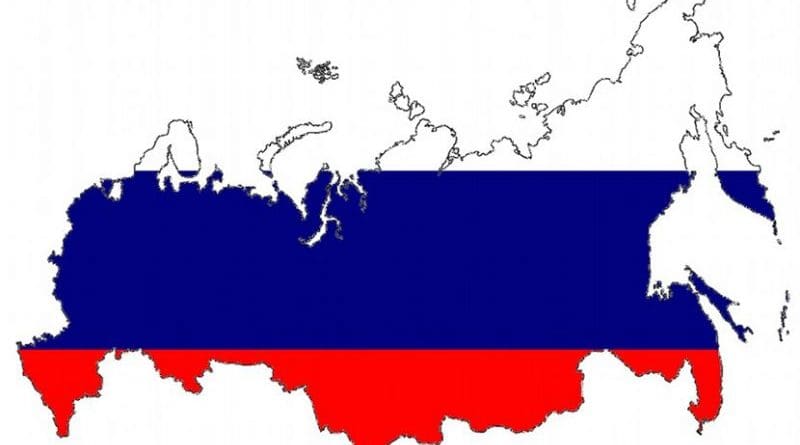‘Enigmatic Russia’ And Its Detractors – Analysis
Periodically, some have engaged in what can be best described as “PoliSport”. (Years ago, I recall New York metropolitan area radio talk show host Steve Malzberg, using this term.) Such a route can prove to be faulty. This is especially true when some preferred Western mass media types do this against Russia. These instances can say more about the given commentator and its promoters, than the actual situation in that country.
A case in point is Julia Ioffe’s 2014 Sochi Winter Olympics piece in The New Republic, on the decision to let Evgeni Plushenko skate in the men’s program. It’s sheer Monday morning quarterbacking to second guess his entry with BS about pro-Putin officials unfairly favoring the pro-Putin Plushenko, over a better option. In actuality, this matter is akin to the Boston Red Sox, not having earlier relieved Pedro Martinez, in game 7 of the 2003 American League Championship Series. As an accomplished champion, who skated well in the prior event, Plushenko earned the right to skate again. Going into the men’s program, NBC figure skating commentators Tara Lipinski and Johnnie Weir, supported Plushenko’s appearance, without second guessing whether another Russian was a better alternative. Pro-Putin types want to win. In sports, the mighty have been known to not win, despite being favored.
The themes of how Russia is best under tough conditions and how it doesn’t look as strong or as weak, when it appears to be either of the two, have merit.
Scott Stinson’s January 4 PostMedia News Churchillian titled article “‘Enigmatic’ Russia Advances To World Junior Gold-Medal Game With 4-1 Win Over Sweden“, highlights the recent ups and downs that the Russian men’s national ice hockey teams have exhibited in major tournaments. After its aforementioned victory against Sweden, the Russian juniors continued topsy turvy manner, in a 5-4 loss to Canada for the championship. At one point in that game, Russia was down 5-1. In the game to determine the winner of the 2011 International Ice Hockey Federation World Junior Championship, Russia came back from a three goal deficit to defeat Canada. Prior to the start of this year’s version of that tournament, most analysts on the subject, seemed to believe that Sweden and Canada had a better chance than Russia to come out on top.
Turning away from PoliSport, Ali Velshi’s biased against Russia Al Jazeera America show “Real Money”, featured Mark Galeotti, who gave an incomplete assessment on what present day Russians are willing to endure. He said that Russia’s WW II suffering was awhile ago, unlike the recent economic growth it experienced. Galeotti suggested that contemporary Russians might not be so willing to take a noticeable economic decline. Downplayed in that Al Jazeera America segment, is the memory that Russians have of their economically turbulent period in the 1990s. Mainstream Russians can see thru the biases that some in the West have against Russia – Galeotti included.
At his blog, Galeotti expressed the belief that Russia should pay a price for taking back Crimea, while uncritically referencing Josh Rogin’s Bloomberg article, which depicts the Obama administration trying to reach out to an intransigent Kremlin. Galeotti adds that it’s “immoral” to accept Crimea’s reunification with Russia, without that nation paying a price.
For him, it’s apparently not so immoral to okay the coup like circumstances, that ousted the democratically elected Ukrainian president Viktor Yanukovych, followed by a series of increased anti-Russian actions, which many within Ukraine’s Communist drawn boundaries don’t support. In line with neocon to neolib, to flat out anti-Russian advocacy, Galeotti downplays a trend that has been set with the support for Kosovo breaking away from Serbia (in contradiction to UN Security Council Resolution 1244 and the preference of Belgrade), Turkey’s decades long propping of the “Turkish Republic of Northern Cyprus” (with comparatively limited international outrage) and a 2010 International Court of Justice advisory opinion, that gives credence to the idea of areas having the right to declare independence from an existing nation.
Regarding the Crimea-Kosovo comparison, I recently noted that:
- Crimea has a lengthy past with Russia,
- the desire for Kosovo’s designation as a separate entity is a more recent development,
- the repackaged KLA in Kosovo doesn’t come across as having a greater moral fiber than the Crimean body politic,
- Crimea’s pro-Russian majority are within reason to be against living in a state where anti-Russian slants get the upper hand.
The bias against Russia has included some glee in its current economic challenges. Not everyone in the West is so on board with the idea of looking to economically punish Russia. The more intelligent of Western economists recognize the potential global economic pitfalls in seeking to wreck one of the ten largest economies in the world.
How long will the fossil fuel pricing remain low? In any event, Russia is slated to sell a lot of fossil fuel to India, China and probably some other markets.
Without a great social upheaval, it’s not unrealistic to believe that Russia can probably advance from a 3-5 year economic downside, which (in terms of hardship) falls well short of its 1990s experience. Before Russia’s recent downward turn, it wasn’t as motivated to economically diversify in other areas besides fossil fuel. Now, it’s more encouraged to do so, while having a base to potentially succeed in that endeavor.

